The Journey of MRF in SNNP
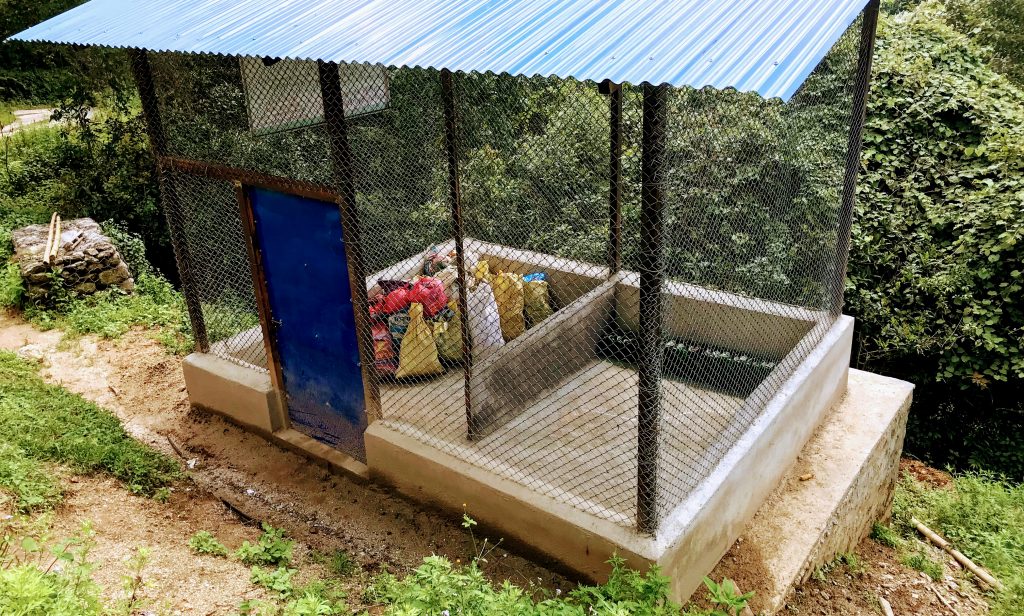
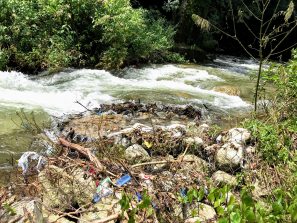
The idea of constructing an MRF (Material Recovery Facility) in the village of Mulkharka – a bufferzone inside the protected area of Shivapuri-Nagarjun National Park (SNNP)- came as a necessity to manage solid waste as is commonly done around the world. First of all, let’s start with the introduction of MRF. It is a place where non-biodegradable wastes are collected and then sorted out, manually or mechanically, to dispose them appropriately. The recyclables are either sold to recyclable factory or converted into different products and the rest are sent to the landfill site. This process not only reduces the total amount of waste generated, the prime function of the structure, but also generates income, a welcome side-effect.
MRFs are again categorised on the basis of the type of waste received:
- Clean, where the non-biodegradables are already sorted out before arriving;
- Dirty, where the non-biodegradables are sorted out in the MRF; and
- Mixed waste, where even biodegradable materials are brought in.
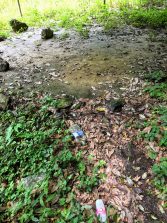
In mixed and dirty MRFs, it takes more resources to sort out the non-degradable. The MRF in Mulkharkha, designed as a Clean one, is tethering towards Dirty type. The reason being is the dumping of uncleaned used plastic bags and wrappers which are resurfacing and the lack of water tap near the MRF for cleaning.
Hotels and restaurants in this community, due to the influx of tourists, mainly domestic tourists are the recipient of the drink bottles and other non-biodegradable wastes. The degradable wastes generated from household and farm are already used for composting manure. This place is en route of a popular hiking destination for the people of Kathmandu Valley, and there is a huge influx of religious people during various festivals too. Especially, on this occasion, the route and the religious sites becomes very dirty. The Park had and still has placed so many rules and restrictions but people seem to be hell-bent in dirtying the place they are visiting for recreational or religious purposes. These people who go for worship or to enjoy a clean and green environment, openly defecate in the place which is an irony in itself whatever the reason might be: lack of awareness, lack of appropriate dumpsters/facilities, or simply laziness.
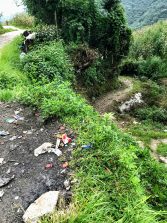
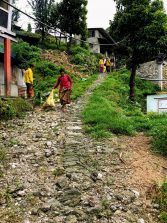
The energetic and dynamic women of Janajagaran Mahila Samiti (JMS) were regularly picking up plastics and other non-biodegradable waste within their locality every fortnight. They stumbled upon another hurdle when they found out that the plastics thus collected should not be burned, it is a severe hazard to health. They could not also put the plastic laying around like dogs and especially the clever monkeys would tear the bags apart and throw those collected plastics, using manual labor and precious time of our females who are already busy in their household activities, around the locality and jungle. The problem came back to ground zero. They also could not find a place in the bufferzone to bury the waste in the ground by digging a hole. Seeing this problem, the Watershed Management team, NGO Package 1 of BRBIP (Bagmati River Basin Improvement Project) planned to construct a Material Recovery Facility (MRF). Taking feedback from the locals, it was also made monkey-proof by adding wire mesh on the walls of the construction, despite the increase in cost. If this was not done, monkeys would pick up the plastics and spread it around, negating the hard work of JMS. A place was selected by the Bufferzone User Group, where the MRF was constructed to be managed by JMS. This construction site was closer to the hotels and houses in Mulkharkha.
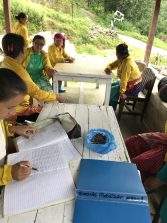
Events:
Mulkharkha
A small opening ceremony was organised on Sunday, 3rd Bhadra 2075 (19th August 2018) for the Material Recovery Facility in Mulkharkha, a bufferzone in Shivapuri- Nagarjun National Park. This particular day was chosen, with a discussion with the Chairman of JMS, because it coincided with their monthly meeting. Otherwise, it would be hard for all of them to leave the house every other day for community work. This day, they already had to leave their house for the monthly meeting of the cooperative. Thus, on that day, plastics and other non-biodegradables were collected by the JMS early in the morning and then put alongside the facility. The monthly meeting also happened simultaneously.
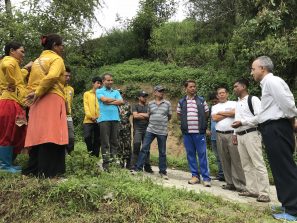
Location: Mulkharkha, Shivapuri- Nagarjun National Park
Date / Time: Sunday, 3rd Bhadra 2075 (19th August 2018)/ 8 am
Attendees:
– Dr. Madhav Karki: Team Leader of Watershed Management,
– Mr. Ram Manandhar: Chairman of Ward No 1
– Dr. Dhundi Pathak: Sanitation Expert
– R. Keshav Dorani: Ranger of National Park
– Ms. Dawa G. Sherpa: Chairman of JMS, along with its members
– Mr. Narayan Shrestha: Chairman of Bufferzone
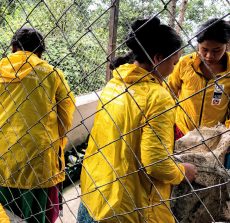
– Mr. Prakash Karmacharya: Principal of Sundarijal Primary School
– Mr. Pheku Jaiswal: Recyclable businessman
– Dr. Mohan Wagley: Watershed Management expert
– Ms. Archana Dhakal and Mr. Kulendra Kuwar: Community Mobilizers
The importance of the MRF was highlighted, along with the importance of segregation of waste. Then, the opening was launched by the Chairman of Ward No 1, Mr. Ram Manandhar by opening the door and putting the plastics in place. He promised that when the MRF is full, the Ward will provide the truck to sent the non-recyclables to the landfill site. Then, all of the collected plastics and bottles were put separately in different compartments in the MRF.
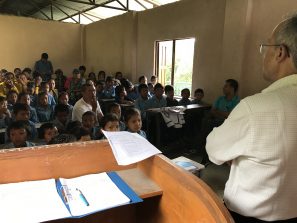
Sundarijal Primary School
Location: Sundarijal Primary School, Mulkharkha, Shivapuri- Nagarjun National Park
Date / Time: Sunday, 3rd Bhadra 2075 (19th August 2018)/ 9 am
Attendees: All of the above experts and stakeholders along with school children and teachers
Then, we all went to Sundarijal Primary School and had a small interactive session with the students of grade 4 and 5, so as not only to give information about the MRF and motivate them to throw plastics in its appropriate garbage bins but also on the concepts of Solid Waste Recycling, Reusing and ultimately Reducing (R3). This program has motivated the school to join in. They want to be involved in the next cleaning campaign along with JMS.
Okhareni
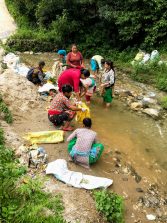
Location: Okhareni community
Date / Time: Saturday, 16th Bhadra 2075 (1st September 2018)/ 11 am
Attendees: Women’s Group from Okhareni community
This MRF is also being promoted for use by other buffer zone committees. For this, similar cleaning campaign by Women’s Group has also been started in the Okhareni community. There also women have collected non-biodegradables (plastic and glass bottles, food wrappers, plastic sack and bags, broken glass, beer cans), after being washed in the streams and were brought to the MRF and kept there. However, this might not be possible on a regular basis; it would take 1 hour on foot to reach Mulkharkha and vehicles refuse to carry the ‘waste’. They will dig holes in a pre-assigned place and keep there until a truckload of non-biodegradables gets collected.
The next set of challenges is the proper utilization of the MRF by the bufferzone community, pre-cleaning and pre-sorting of the non-biodegradables waste before putting them inside the MRF.
Keywords:
MRF: Material Recovery Facility
SWM: Solid Waste Management
SNNP: Shivapuri-Nagarjun National Park
BRBIP: Bagmati River Basin Improvement Project
#NatureForAll
——x—–
Author:
Archana Dhakal
Community Mobilizer for IDSN-CGEDN JV, BRBIP
archana.dhakal@gmail.com
https://www.cgednepal.org/team-member/ms-archana-dhakal/?preview_id=287&preview_nonce=e7fd8e180a&_thumbnail_id=289&preview=true
